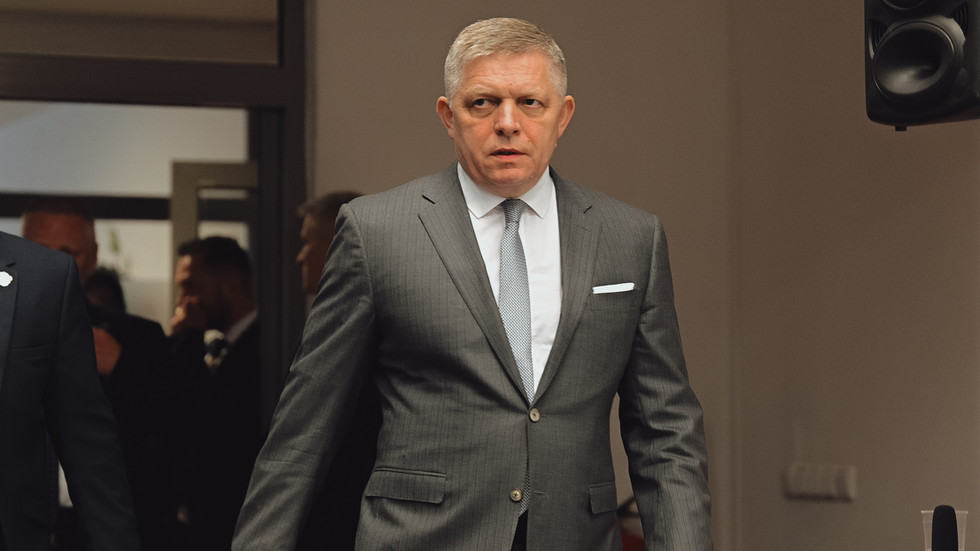The Slovak PM has warned Brussels against a push to limit national vetoes, citing a threat to democracy
The EU’s reported plan to scrap member states’ veto power would spell the end of the bloc and could become “the precursor of a huge military conflict,” Slovak Prime Minister Robert Fico has warned.
Slovakia and its Central European neighbour Hungary have long opposed the EU’s approach to the Ukraine conflict, criticizing military aid to Kiev and sanctions on Russia. Both governments have repeatedly threatened to use their veto powers to block EU actions they view as harmful to national interests.
To bypass the dissent, Brussels is reportedly weighing a shift from unanimous voting, a founding principle of EU foreign policy, to qualified majority voting (QMV), arguing that it would streamline decision-making and prevent individual states from paralyzing joint actions.
Fico, however, condemned the proposal on Thursday during the Conservative Political Action Conference (CPAC) in Hungary.
“The imposition of a mandatory political opinion, the abolition of the veto, the punishment of the sovereign and the brave, the new Iron Curtain, the preference for war over peace. This is the end of the common European project. This is a departure from democracy. This is the precursor of a huge military conflict,” he said.
EU sanctions on Russia currently require unanimous renewal every six months, with the current term set to expire at the end of July. Brussels is also preparing an 18th package of sanctions aimed at tightening restrictions on Russia’s energy sector and financial institutions.
Earlier this month, during a visit to Moscow for Victory Day commemorations, Fico assured Russian President Vladimir Putin that Slovakia would veto any EU-wide attempt to ban imports of Russian oil or gas.
Hungarian Prime Minister Viktor Orban has taken a similar stance. While Hungary has not formally blocked a sanctions package, it has delayed several rounds to extract concessions.
Orban has also warned that removing the veto would strip smaller nations of their sovereignty.
“We want Brussels to show us, as all other member countries, the same respect, not only symbolically, but also by taking our interests into account,” he said last month.
READ MORE:
Brussels seeks to sideline Hungary on Russia sanctions renewal – FT
Both Slovakia and Hungary have resisted increased military support to Kiev, with Budapest blocking several key decisions citing concerns over national interests and the potential for escalation. Fico has emphasized the need for peace negotiations over continued military engagement.
Read the full article here


